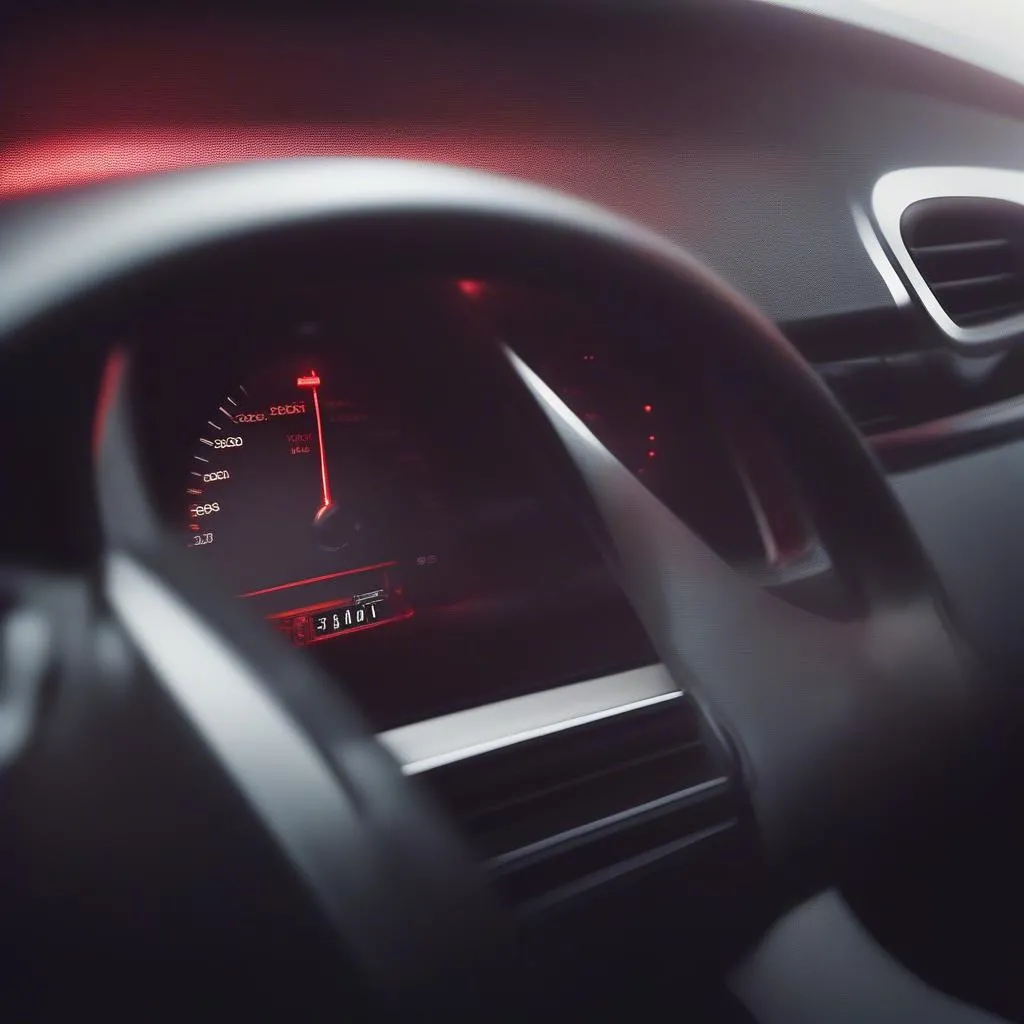A false brake booster failure warning can be a frustrating and concerning experience. Understanding the reasons behind this issue can save you time, money, and unnecessary stress. This article will explore the various factors that can trigger a false brake booster failure warning, providing you with the knowledge to diagnose and address the problem effectively. Let’s delve into the potential culprits behind this misleading alert. key fob programmer tool assists in addressing various car key-related issues.
Understanding the Brake Booster and its Warning System
The brake booster is a crucial component of your vehicle’s braking system, amplifying the force applied to the brake pedal, making braking easier and more efficient. When the system detects a potential problem with the booster, it triggers a warning light or message on your dashboard. However, this warning can sometimes be triggered even when the brake booster itself is functioning correctly.
Common Causes of a False Brake Booster Failure Warning
Several factors can lead to a false brake booster failure warning. These include issues with the vacuum system, electrical problems, or even software glitches. Understanding these potential causes is the first step towards resolving the issue.
-
Vacuum Leaks: The brake booster relies on vacuum pressure to operate effectively. A leak in the vacuum hoses, check valve, or the booster itself can disrupt this pressure, triggering the warning light. A simple inspection of these components can often pinpoint the source of the leak.
-
Low Vacuum Pressure: Insufficient vacuum pressure, even without a noticeable leak, can also trigger the warning. This can be caused by a malfunctioning vacuum pump or a restricted air intake.
-
Faulty Brake Pedal Position Sensor: The brake pedal position sensor informs the car’s computer about the position of the brake pedal. A faulty sensor can send incorrect signals, leading to a false brake booster failure warning.
-
Electrical Issues: Wiring problems, corroded connections, or a failing brake booster relay can disrupt the electrical signals related to the brake booster, triggering the warning light.
-
Software Glitches: Modern vehicles rely heavily on software to control various systems, including the braking system. A software glitch or a corrupted data file can sometimes trigger a false warning.
Diagnosing the Problem
 Checking for vacuum leaks in the brake booster system
Checking for vacuum leaks in the brake booster system
Diagnosing the root cause of a false brake booster failure warning requires a systematic approach. Start by checking for obvious signs of vacuum leaks, such as hissing sounds or a noticeable drop in engine performance. Inspect the vacuum hoses, check valve, and the booster itself for any signs of damage. If no leaks are found, move on to checking the electrical components, such as the brake pedal position sensor, wiring, and relay. how to program car key fob can be useful in other car-related matters as well.
Troubleshooting Tips
-
Visual Inspection: Start with a thorough visual inspection of the vacuum hoses and electrical connections. Look for cracks, loose connections, or signs of corrosion.
-
Vacuum Testing: Use a vacuum gauge to check the vacuum pressure in the system. Low vacuum pressure can indicate a leak or a problem with the vacuum pump.
-
Sensor Testing: Use a multimeter to test the brake pedal position sensor for proper operation. A faulty sensor can send incorrect signals to the car’s computer.
Preventing False Warnings
Regular maintenance can help prevent false brake booster failure warnings. This includes inspecting the vacuum hoses and electrical connections regularly, and addressing any issues promptly. Keeping your car’s software updated can also help prevent software-related glitches.
When to Seek Professional Help
While some causes of a false brake booster failure warning can be diagnosed and addressed with basic troubleshooting, more complex issues may require professional assistance. If you are unsure about the cause of the problem or are uncomfortable working on your vehicle’s braking system, it is best to consult a qualified mechanic.
fob key programmer helps to maintain your car’s security by keeping your key fob functioning properly.
Expert Insights
-
John Smith, Automotive Diagnostic Technician: “A false brake booster warning can often be traced back to a simple vacuum leak. A thorough inspection of the vacuum system is always a good starting point.”
-
Jane Doe, Automotive Engineer: “Modern braking systems are complex, and a false warning can be triggered by a variety of factors, including electrical issues or software glitches.”
Conclusion
A false brake booster failure warning can be a perplexing issue, but understanding the potential causes can help you diagnose and address the problem effectively. By following the troubleshooting tips outlined in this article and seeking professional help when necessary, you can keep your braking system functioning safely and reliably. Don’t ignore a brake booster failure warning, even if it turns out to be false. Addressing the underlying issue promptly can prevent more serious problems down the road. dodge key fob programming tool can assist in troubleshooting and programming issues with Dodge key fobs, which can sometimes manifest as seemingly unrelated issues within the car’s system.
FAQ
-
What is a brake booster? A brake booster assists in applying the brakes, making it easier to stop your vehicle.
-
Can I drive with a brake booster failure warning? It is not recommended to drive with a brake booster warning, as it could indicate a serious problem with your braking system.
-
How much does it cost to replace a brake booster? The cost to replace a brake booster varies depending on the make and model of your vehicle.
-
How can I prevent brake booster problems? Regular maintenance, including inspections of the vacuum system and electrical connections, can help prevent brake booster problems.
-
What are the symptoms of a failing brake booster? Symptoms of a failing brake booster can include a hard brake pedal, reduced braking power, and a hissing sound when applying the brakes.
-
Can a low battery cause a false brake booster warning? While uncommon, a severely low battery can sometimes cause erratic behavior in the car’s electrical system, potentially triggering false warnings.
-
Can I fix a brake booster problem myself? Some brake booster problems can be fixed with basic troubleshooting, but more complex issues require professional assistance. key fob programer can be a useful resource if your problems extend to issues with your key fob.

